
My intention in this course design was to (1) build back in some of the historical and cultural context that’s missing from the ‘standard story’ of Modern Philosophy, and (2) undermine European exceptionalism and chauvinism by exploring how the elements of modernity are not unique to this time and place. This course is also designed to lead into my course for the Fall semester, Hume and Kant, which will (in part) look into the role that Hume and Kant played in establishing scientific racism and the ideology of “the West” and European exceptionalism, and thus the removal of a big part of the story of Modern Philosophy.
Resources
History of Philosophy Summarized and Visualized
Philosopher’s Web
History of Philosophy Without Any Gaps podcast
Josh Platzky Miller and Lea Cantor, “The Future of the History of Philosophy”
Josh Platzky Miller, “From the ‘History of Western Philosophy’ to entangled histories of philosophy: the Contribution of Ben Kies,” British Journal for the History of Philosophy, 31(6). 2023.
Part 1: Rationalism
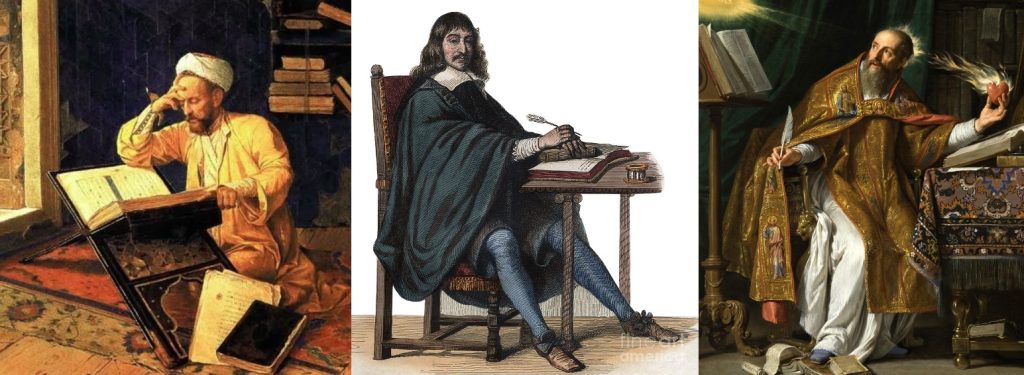
René Descartes (French, b. 1596 Kingdom of France – d. 1650 Swedish Empire)
Aurelius Augustinus (aka Augustine of Hippo, Berber, b. 354 Roman Empire [Algeria] – d. 430 Western Roman Empire [Algeria])
Weeks 1–2: Stories of skeptical crisis and supernatural intervention
Reading: Parts 1–3 René Descartes’s Discourse on the Method.
In-class discussion of Adrien Baillet, “The life of Monsieur Des Cartes containing the history of his philosophy and works”
Reading: Plato, “The Apology”
Reading: Augustine’s Enchiridion, Chs. I–XXIII
Reading: Al-Ghazali, “Munkidh min al-Dalal” (Deliverance from Error), pp. 11–46
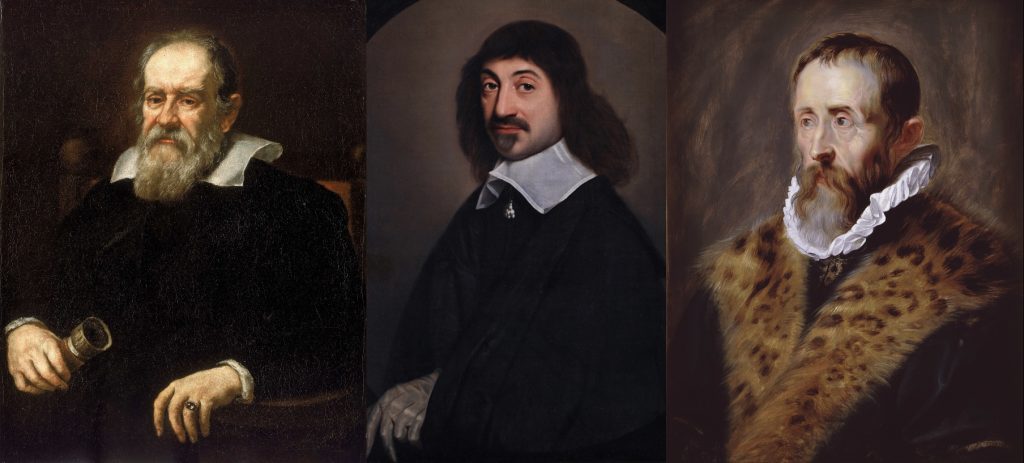
René Descartes (French, b. 1596 Kingdom of France – d. 1650 Swedish Empire)
Joost Lips (aka Justus Lipsius, Flemish, b. 1547 Spanish Netherlands [Belgium] – d. 1606 Spanish Netherlands [Belgium])
Week 3: Neostoicism and Heliocentrism
Reading: Parts 4–6 René Descartes’s Discourse on the Method.
In-class discussion of Joost Lips, “Book of Constancy” part 1 of 2, part 2 of 2.
Reading: Seneca, “On the Happy Life.”
Reading: Epictetus, Enchiridion part 1 of 2, Epictetus, Enchiridion part 2 of 2.
In-class discussion of The Tychonic System
In-class discussion of Galileo’s rendering of the moon
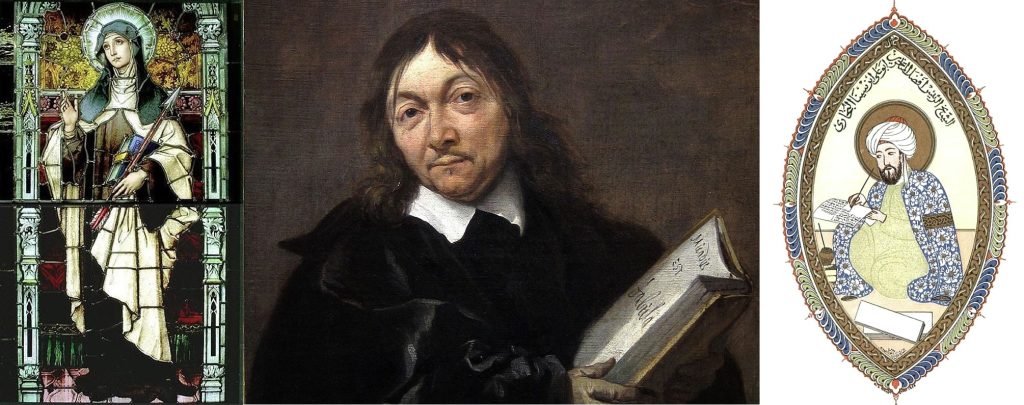
René Descartes (French, b. 1596 Kingdom of France – d. 1650 Swedish Empire)
Ibn Sina (aka Avicenna, Persian, b. 980 Saminid Empire [Uzbekistan] – d. 1037 Kakuyid dynasty [Iran]),
Week 4.1: Meditation 1
Reading: René Descartes, Meditations on First Philosophy, “Preliminary Materials”
Reading: René Descartes, Meditations on First Philosophy, First Meditation
Reading: René Descartes and Thomas Hobbes, Third Set of Objections and Replies
In class discussion of Al-Ghazali, “Munkidh min al-Dalal” (Deliverance from Error) re: method of doubt, dream hypothesis (pp. 11–46)
In-class discussion of Teresa of Ávila, The Interior Castle, First Mansion re: method of doubt, evil demon hypothesis
Week 4.2: Meditation 2
Reading: René Descartes, Meditations on First Philosophy, Second Meditation
Reading: René Descartes and Thomas Hobbes, Third Set of Objections and Replies
In-class discussion of Augustine’s Enchiridion, Chs. I–XXIII re: cogito
In-class discussion of Ibn Sina’s “floating man” argument re: cogito
In-class discussion of Aristotle’s Metaphysics Book Zeta re: wax passage
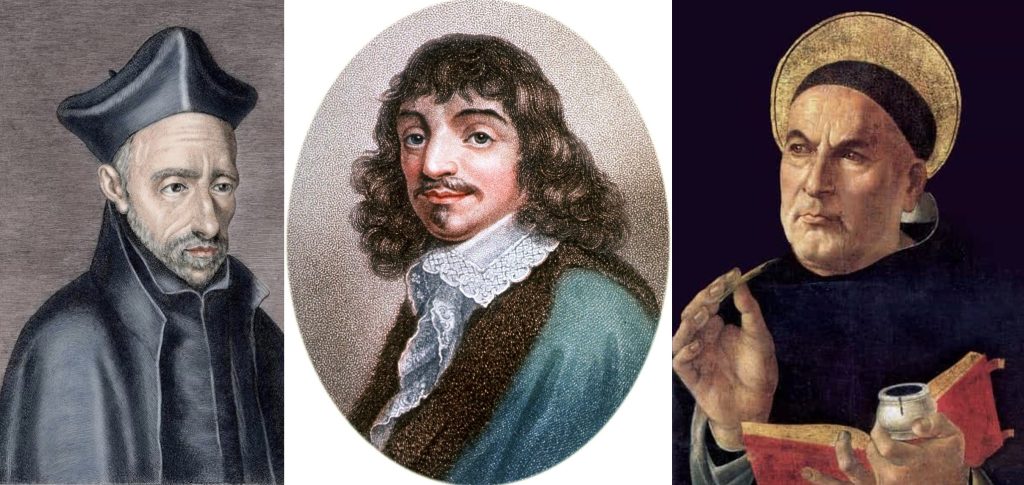
René Descartes (French, b. 1596 Kingdom of France – d. 1650 Swedish Empire)
Tommaso d’Aquino (aka Thomas Aquinas, Italian, b. 1225 Kingdom of Sicily [Italy] – d. 1274 Papal States [Italy])
Week 5: Meditation 3
Reading: René Descartes, Meditations on First Philosophy, Third Meditation
Reading: René Descartes and Thomas Hobbes, Third Set of Objections and Replies
In-class discussion of Sextus Empiricus, Outlines of Pyrrhonism, “The Five Modes” (aka Agrippa’s Trilemma) re: foundationalism
In-class discussion of The Divine Illumination tradition—its origin in Aristotelean science’s problem of knowledge of universals; development by Ibn Sina, Ibn Bajja, and Ibn Rushd; naturalization by Thomas Aquinas, Duns Scotus, and William of Ockham; and Francisco Suárez’s version in the textbooks used in Descartes’s Jesuit education—re: “by the natural light” and “clear and distinct perception”
In-class discussion of Quinque Viæ, Thomas Aquinas, Summa Theologica re: causal and cosmological proofs
In-class discussion of Plato, Meno re: mathematical realism
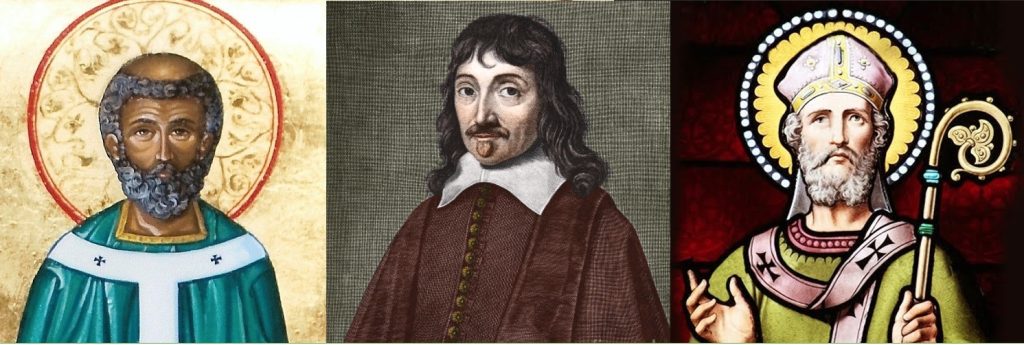
René Descartes (French, b. 1596 Kingdom of France – d. 1650 Swedish Empire)
Anselme d’Aoste (aka Anselm of Canterbury, Italian, b. 1033 Holy Roman Empire [Italy] – d. 1109 England)
Week 6.1: Meditation 4
Reading: René Descartes, Meditations on First Philosophy, Fourth Meditation
Reading: René Descartes and Thomas Hobbes, Third Set of Objections and Replies
Augustine’s Enchiridion, Chs. I–XXIII re: error, free-will theodicy, privation theodicy
In-class discussion of Teresa of Ávila, The Interior Castle, First Mansion re: temptation, error, and right conduct through knowledge of the self in relation to God
In-class discussion of Seneca, “On the Happy Life.” re: knowing what is up to us and what is not
In-class discussion of Epictetus, Enchiridion part 1 of 2, Epictetus, Enchiridion part 2 of 2 re: knowing what is up to us and what is not
Week 6.2: Meditation 5
Reading: René Descartes, Meditations on First Philosophy, Fifth Meditation
Reading: René Descartes and Thomas Hobbes, Third Set of Objections and Replies
In-class discussion of Anselm of Canterbury, Proslogion, Chs. 1–4 re: the ontological argument
In-class discussion of Gaunilo of Marmoutiers, In Behalf of the Fool re: the ontological argument
Week 7.1: Meditation 6
Reading: René Descartes, Meditations on First Philosophy, Sixth Meditation
Reading: René Descartes and Thomas Hobbes, Third Set of Objections and Replies
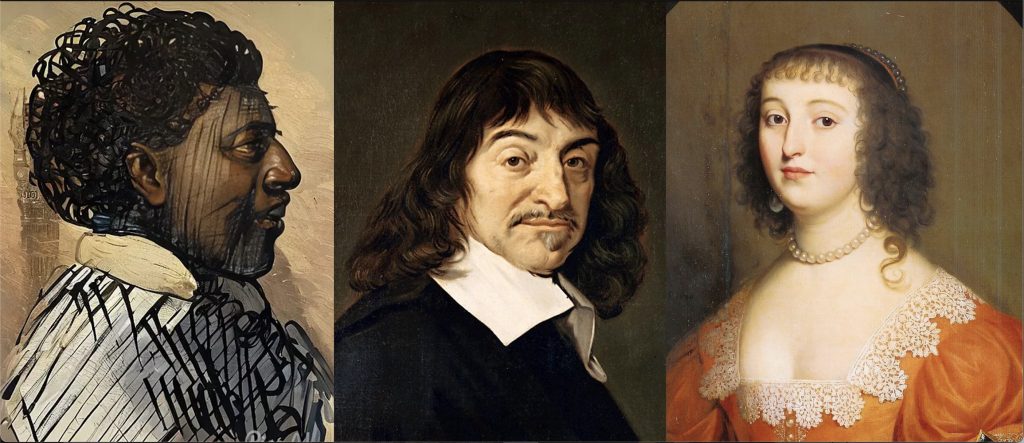
René Descartes (French, b. 1596 Kingdom of France – d. 1650 Swedish Empire)
Elisabeth Simmern van Pallandt (aka Princess Elisabeth of Bohemia, b. 1618 Electorate of the Palatinate [Germany] – d. 1680 Herford Abbey [Germany])
—note: Only one image known to represent Amo seems to exist—a black-and-white sketch. The image used here is an AI-generated painterly modification of this sketch.
Week 7.2: Objections and replies from Elisabeth Simmern van Pallandt
Reading: Correspondence between Descartes and Simmern van Pallandt, 1643–44.
Week 8: Objections and replies from Wilhelm Anton Amo
Reading: Anton Wilhelm Amo, “On the Impassivity of the Human Mind”
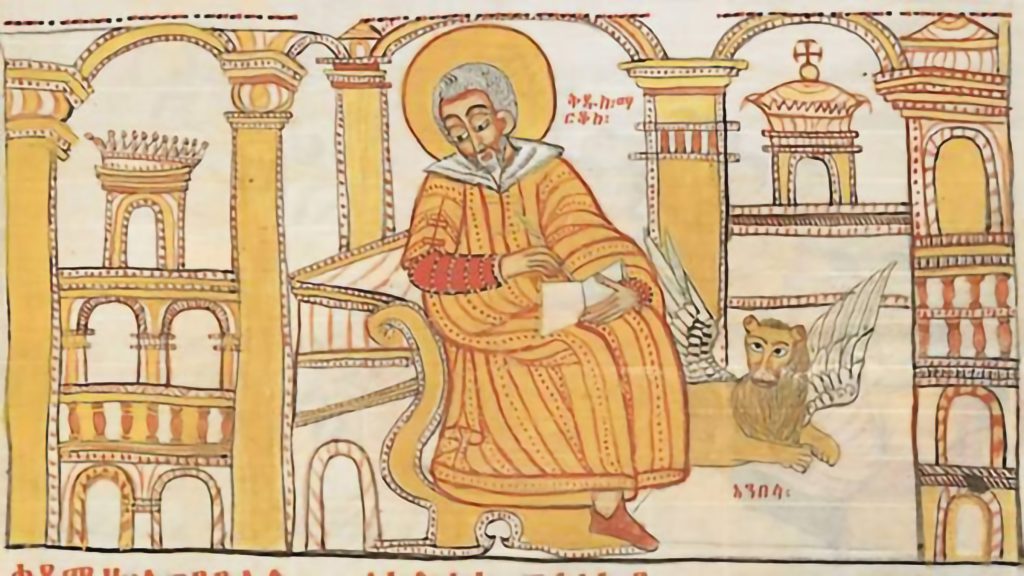
Week 9: Reflective discussion
No reading for this week to allow time to complete midterm. In-class discussion of modernism, the history of history, and the emergence of modern faith in progress through history. I also made food. Menu served:
Ancient Greece:
• Epicurian pottage: lentils boiled with turnips, water, and nothing else
• olives
17th Century France:
• petit pois
• chicken meunière
• bread
17th Century Netherlands
• Almond Taert
Part 2: Empiricism
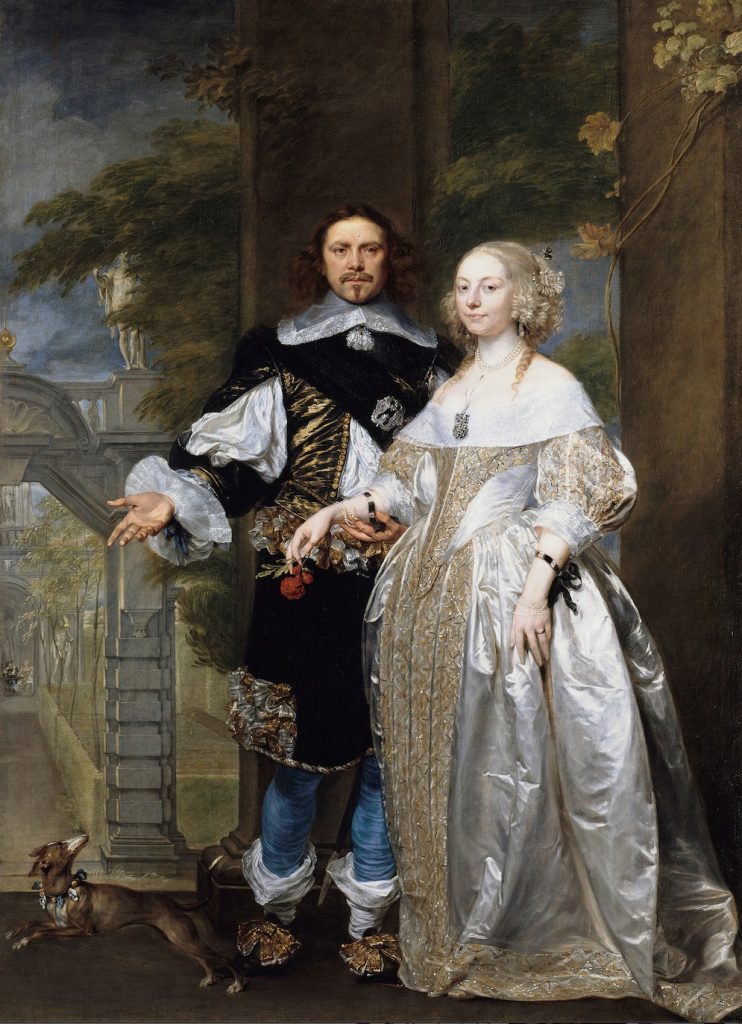
William Cavendish (aka William Cavendish, First Duke of Newcastle-upon-Tyne, English, b. 1593 England – d. 1676 England)
Margaret Lucas Cavendish (aka Margaret Cavendish, Duchess of Newcastle-upon-Tyne, English, b. 1623 England – d. 1673 England)
Week 10.1: Margaret Lucas Cavendish against Descartes
Midterm due; no assigned reading.
In-class discussion of Margaret Lucas Cavendish, Philosophical Letters, 1.30.
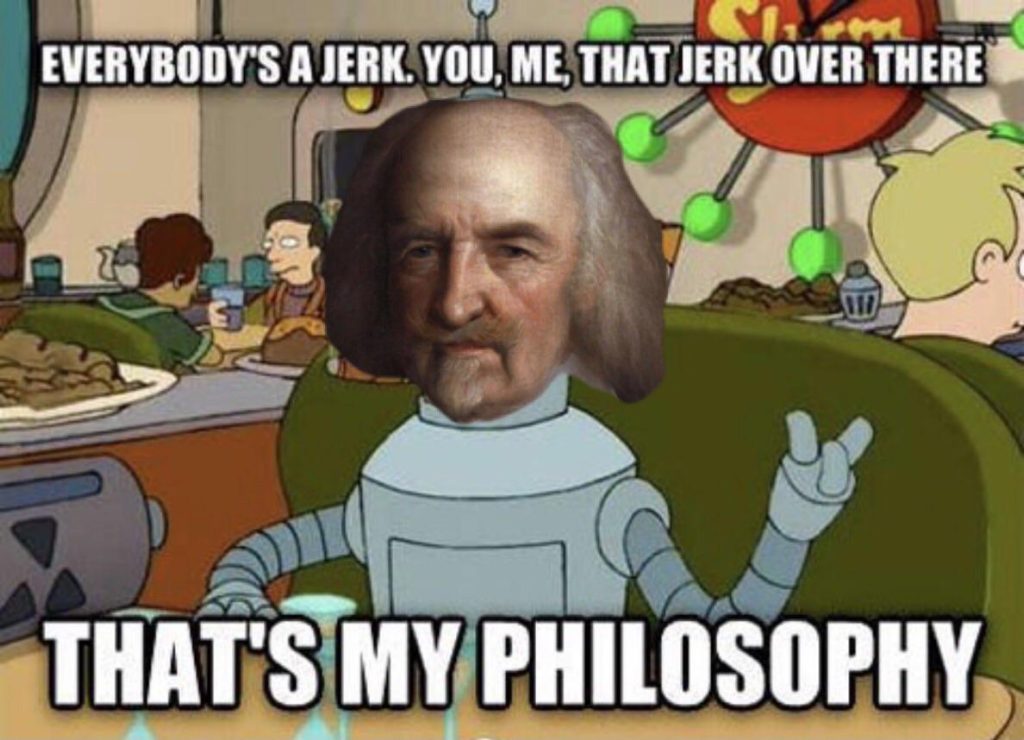
Week 10.2: Thomas Hobbes
Reading: Thomas Hobbes, Leviathan (I–VIII)
In-class discussion of Stoic metaphysics/cosmology
In-class discussion of Tertullian (Quintus Septimius Florens Tertullianus, 155–220 CE), re: Christian monist materialism
Week 11.1: Thomas Hobbes
Reading: Thomas Hobbes, Leviathan (IX–XVI)
In-class discussion of Niccolò Machiavelli, The Prince
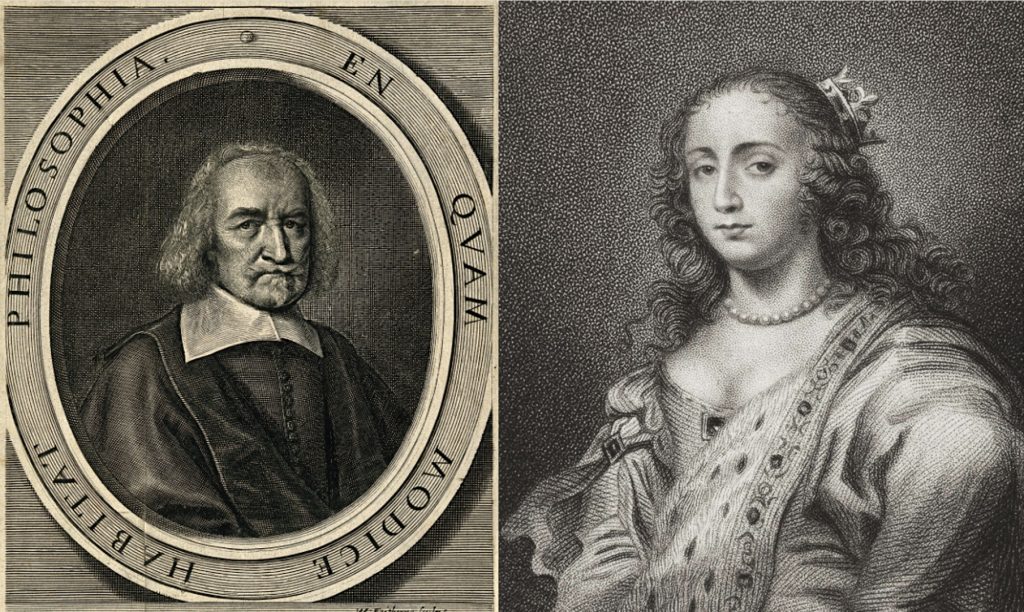
Margaret Lucas Cavendish (aka Margaret Cavendish, Duchess of Newcastle-upon-Tyne, English, b. 1623 England – d. 1673 England)
Week 11.2: Margaret Cavendish against Hobbes
Reading: Margaret Lucas Cavendish, Philosophical Letters (Part 1, letters 3, 4, 5, 6, 9, 10, 11, and 13)
In-class discussion of Epicurus and Epicurianism
Week 12.1: Margaret Cavendish against everybody
Reading: Margaret Cavendish, The Blazing World
a highly-recommended audiobook version
OCR/typeset copy
original 1666 printing
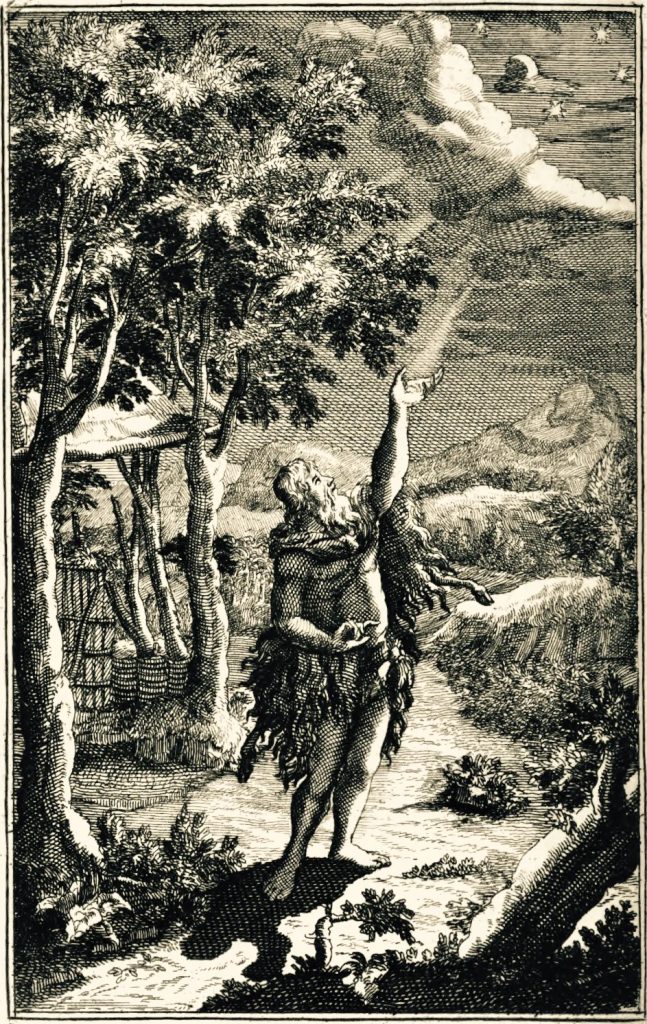
Woodcut of Hayy Ibn Yaqzan from Simon Ockley’s 1708 English translation, under the title The Improvement of Human Reason Exhibited in the Life of Hai Ebn Yokdhan.
Week 12.2: Foundations of empiricism in Classical Islamic philosophy
Reading: Abu Bakr Ibn Tufayl, Hayy Ibn Yaqzan
audiobook
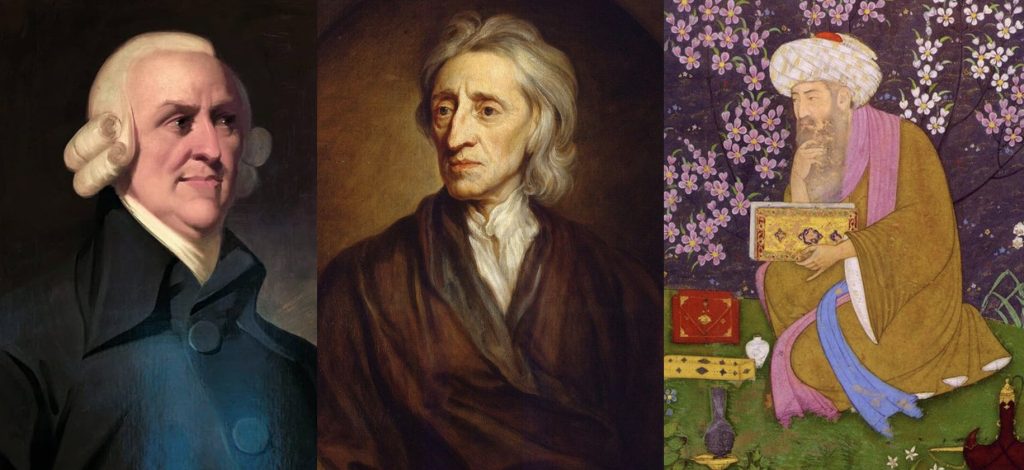
Adam Smith (Scottish, b. 1723 Scotland – d. 1790 Scotland)
John Locke (English, b. 1632 England – d. 1704 England)
Abu Bakr Ibn Tufayl (Arab Andalusian, b. 1105 Almoravid dynasty [Spain] – d. 1185 Almohad Caliphate [Morocco])
Week 13.1: John Locke
Reading: John Locke, An Essay Concerning Human Understanding, Book II, Chs. i-xii
Week 13.2: John Locke
Reading: John Locke, Two Treatises of Civil Government, Book II, Chs. 1–4
In-class discussion of Robert Filmer’s Patriarcha
In-class discussion of Federalist Papers
Week 14.1: John Locke
Reading: John Locke, Two Treatises of Civil Government, Book II, Ch. 5
In class discussion of Adam Smith, The Theory of Moral Sentiments
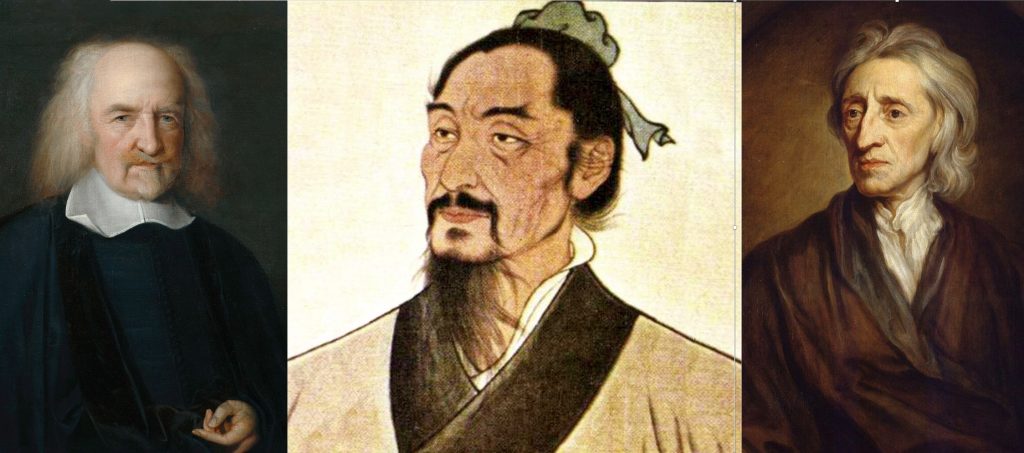
Thomas Hobbes (English, b. 1588 England – d. 1679 England)
墨翟 (Mo Di) (aka 墨子 [Mozi], Chinese, English, b. circa 470 BCE State of Lu [Shandong Province, China] – d. circa 391 BCE)
John Locke (English, b. 1632 England – d. 1704 England)
Week 14.2:
No reading for this last class meeting. Introduction of the final assignment and of 墨子. In-class discussion of “Modernist” thought outside of the Modern period. Introduction of course timelines, showing course discussion of philosophy spanning 2424 years of history in order to cover six primary texts published in a 52 year span. Discussion of canon formation as having less to do with the greatness of a figure or a time period and more to do with self-reinforcing accretion of renown as figures become the ‘currencies’ of symbolic and cultural economies.
I also made food. Menu served: a congee of the sort that the Mohists would have eaten on the march, made of preserved foods (dried grains, pickled vegetables, fermented soybean paste) and gathered wild-growing foods. (No rice, since the state of Lu is in the north, and rice wouldn’t have been a frugal choice.) Ingredients included: millet, glutenous millet, sorghum, adzuki beans, roasted soybean flour, pickled mustard plant, miso, wood ear, shiitake, mustard greens, ginger, and green onion.